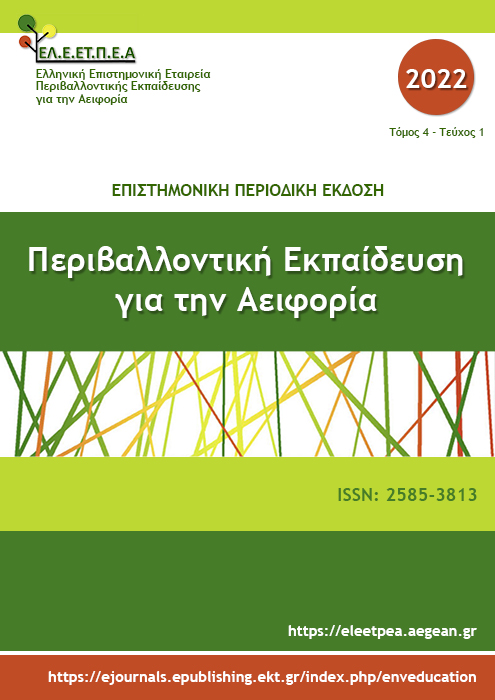Κίνητρα και εμπόδια για μείωση πλαστικού μιας χρήσης στο Πανεπιστήμιο προς έναν αειφορικό μετασχηματισμό του
Abstract
The purpose of this study is to investigate the views of members of the University of Thessaly regarding actions to reduce disposable plastic and more specifically regarding the use of the cooler instead of buying plastic water bottles and the use of reusable glasses instead of disposable glasses. A quantitative survey was conducted and the questionnaire was used to collect data. The sample consists of 1027 people, members of the campus. The results show that the 62.7% of the sample stated their intention to use the cooler instead of buying bottled water from the canteen having as a strong motivation the sense of personal contribution to the protection of the environment and as a basic obstacle their doubt about the safe use of the cooler. The 61.6% of the sample would bring a glass from home for their drink instead of buying it in a plastic glass.The main obstacle seemed to be the difficulty of carrying a glass from home whereas, their biggest motivation was to have an easy-to-carry glass on the market. Finally, there are some suggestions based on the results of the research.
Article Details
- How to Cite
-
Ηλιοπούλου Ι. (2022). Κίνητρα και εμπόδια για μείωση πλαστικού μιας χρήσης στο Πανεπιστήμιο προς έναν αειφορικό μετασχηματισμό του. Environmental Education for Sustainability, 4(1), 38–49. https://doi.org/10.12681/ees.30113
- Section
- Articles

This work is licensed under a Creative Commons Attribution-NonCommercial-ShareAlike 4.0 International License.
Authors retain copyright and grant the journal right of first publication with the work simultaneously licensed under a CC-BY-NC-SA that allows others to share the work with an acknowledgement of the work's authorship and initial publication in this journal.


